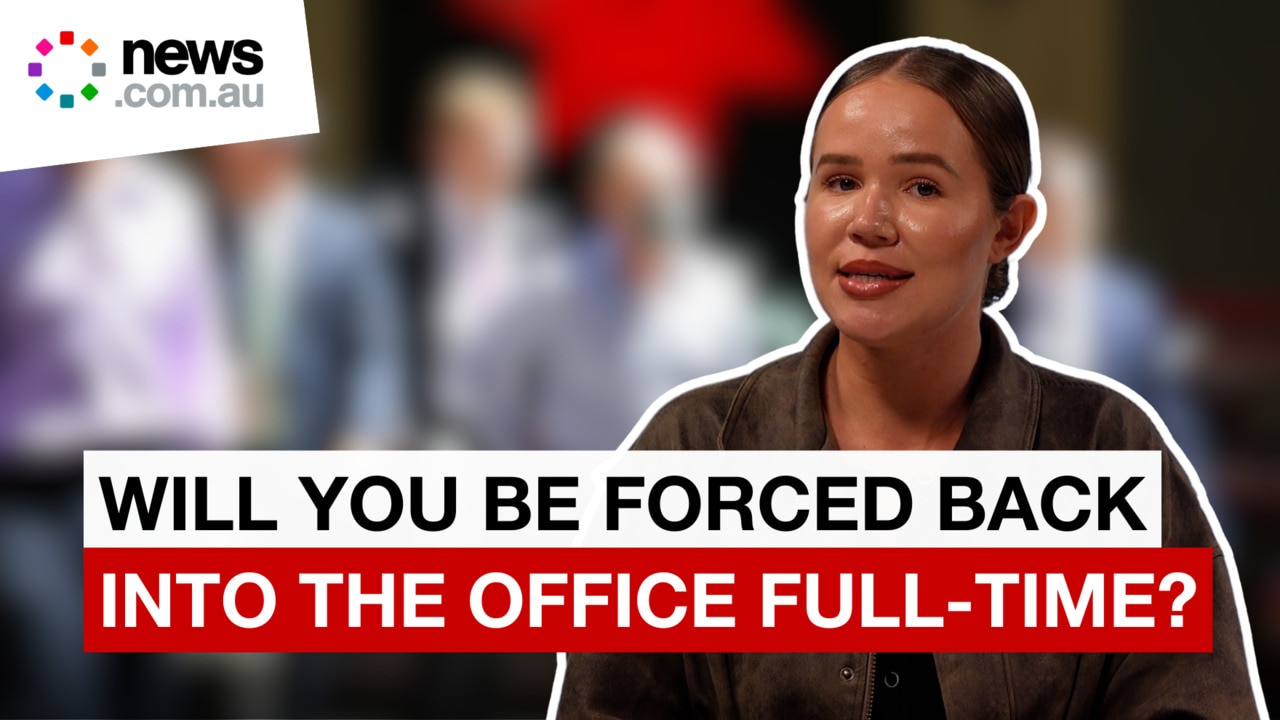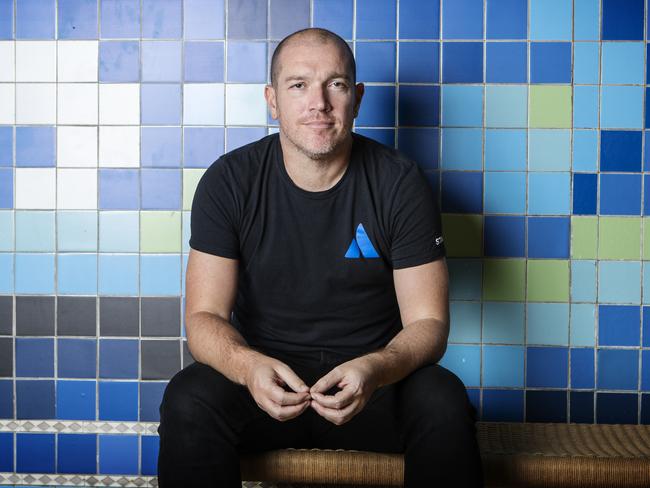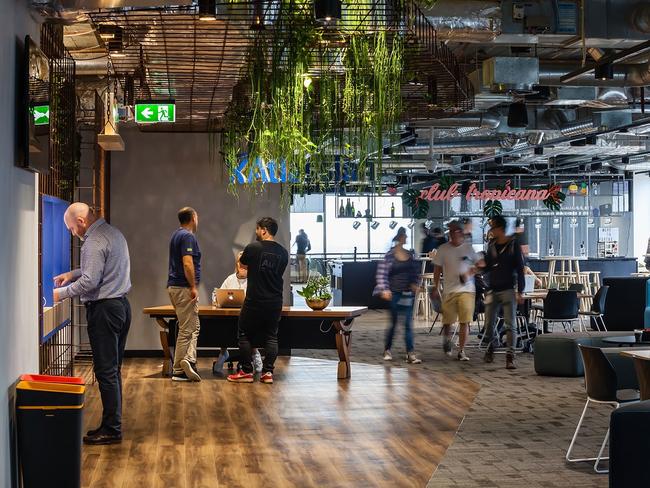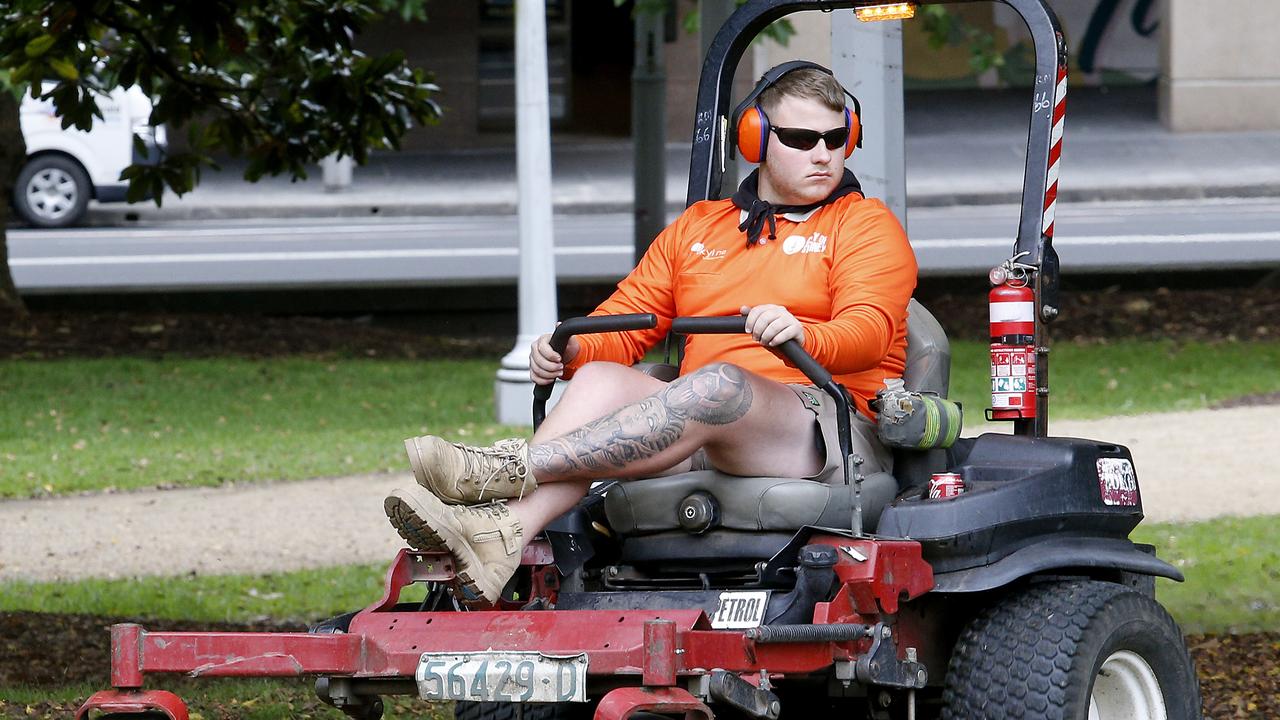Brutal war of words erupts after WFH axed
Aussie tech giant Atlassian has fired another not-so-subtle shot at Amazon for ordering its workers back into the office, sparking a fierce debate online.

At Work
Don't miss out on the headlines from At Work. Followed categories will be added to My News.
Tech firm Atlassian has twisted the knife in Amazon after the e-commerce giant told its staff the work from home honeymoon was over.
In a note to employees earlier this month, Amazon CEO Andy Jassy said all corporate staff would need to come back to the office permanently from January.
The move, which he said would “strengthen our culture and teams”, sparked an internal revolt with three in four of the company’s staff reportedly threatening to walk out over the directive.
About 7000 of Amazon’s 1.6 million workers globally are based in Australia, spread across offices, warehouses, fulfilment centres and delivery fleets.
Atlassian immediately seized the opportunity to try and entice Amazon’s talent to jump ship, with the global head of their “Team Anywhere” initiative ridiculing the move last week.
“Office attendance does not fix fake work,” Annie Dean told The Australian, accusing Amazon of “endorsing the old way as a solution to new problems.”
Now, another senior Atlassian leader has weighed in on the move with a pointed message on LinkedIn.

Dominic Price, the company’s Sydney-based “work futurist”, said he wasn’t going to “hate on” businesses that mandated a return to office.
“As long as they communicate with transparency, and they are fair to their people, then I’m OK,” he wrote.
“Now, onto the people. Companies tend to make decisions for the majority, and not everyone.
“So if you’re somewhere and there’s been a mandate that demonstrably changes your life (for the worse), then I’d love to let you know that Atlassian is hiring.”
He then revealed Atlassian, which has a market value of $US42.3 billion, had 304 roles open around the world with positions in a wide variety of sectors.
“We operate in timezones, so some jobs require you to be within a certain timezone of your colleagues, but you can get the idea from our site,” he added.
“We do have offices too for those that have preference, and you can see our hubs in Sydney, SF, Austin, Poland, Holland, India, Germany, France, UK, Japan etc...all listed.”
In a final stinging blow to Amazon, he reflected on his own work-life balance.
“I appreciate that I get to thrive at work and life. That I get to achieve my goals, and be a good dad. That I can knock a project out of the park, and be home for dinner.”

“Far smaller, less diverse workplace”
Mr Price’s post triggered a passionate debate online.
“The fact is some people really are unproductive working from home, or don’t have the privilege to have the space to do so,” wrote one US marketing executive.
“It absolutely is a decision based on how that company runs and the type of people they want,” he added.
“(Our company) believes in trusting its people to get the work done and being mature about harmonising work and life,” wrote the founder of a consulting firm.
One self-employed man said he agreed with Amazon’s edict, arguing workers who refused to come in the office should be hit with a pay cut.
“It’s ridiculous that the ‘laptop class’ are allowed to stay home while every other worker in all industry has to go outside travel and be part of the financial system,” he wrote.
Mr Price had a sharp rebuttal for that man.
“I prefer to think of the benefit to families and access to work for minority groups that flexible work place and hours can provide,” he wrote.
“For those that have bright minds but don’t have the privileges I have.
“If I only hired people based on their commutable distance to an office, then I’d have a far smaller, less diverse and less smarter workforce.”

Australia at a ‘critical crossroad’
The backlash comes as Australia sits at a “critical crossroads” in the working from home debate.
Commonwealth Bank faced an internal revolt last year when its 49,000 staff were ordered to come back into the office just 50 per cent of the time.
More recently, Australian betting giant, Tabcorp, said this month all employees across its Sydney, Melbourne and Brisbane locations would be required to return to the office five days a week.
The memo stated the change would be “effective immediately”, but noted some staff members may need time to “adjust schedules and routines”, and they would be given a four-week period to do so.
In August, NSW Premier Chris Minns sparked backlash from government workers when he announced remote working privileges introduced in 2019 would come to an end, with all public servants forced back into the office.
There are fears that Victoria could follow suit, with Melbourne mayoral candidate and former AFL star, Anthony Koutoufides, saying his “first priority” if he wins the election will be to get the city’s government and corporate workers back into the office.

It seems an increasing number of Australian leaders are becoming more vocal about their desire for in-office mandates to return.
A recent survey of 500 Australian business leaders, conducted by HR platform Rippling, found that 62 per cent believe a mandatory return to office would have a beneficial impact on company productivity.
Of those surveyed, one in four said they were already implementing a return to office mandate or were considering doing so within the next year.
Given the findings, Matt Loop, VP and Head of Asia at Rippling, said he wouldn’t be surprised if more organisations in the public and private sector start to follow suit in terms of return to office mandates.
“All signs indicate that we’re at a critical crossroads. Businesses are grappling with stagnant productivity and a stalling economy, while simultaneously being asked to provide greater worker rights and flexibility,” he said.
“This is creating a crisis of trust between employers and their employees.”
“To help ensure a smooth transition, we’re going to make this new expectation active on January 2, 2025.”
- With Ally Foster
Originally published as Brutal war of words erupts after WFH axed



